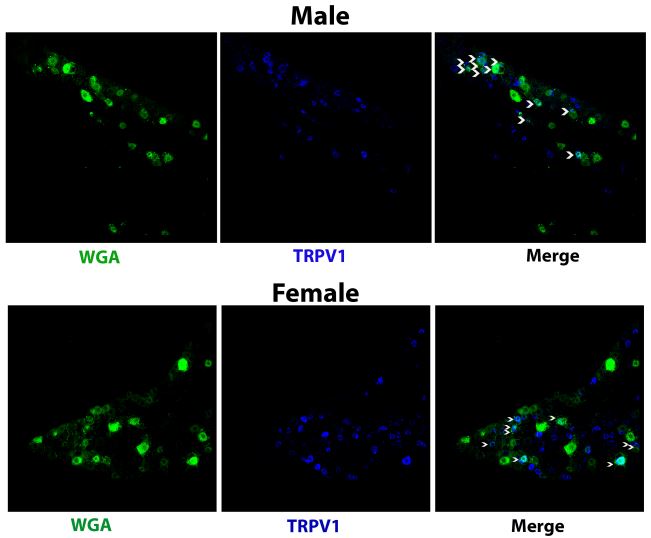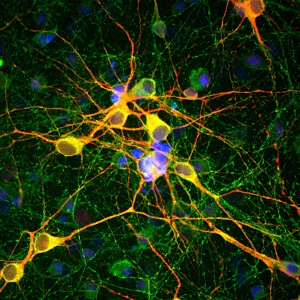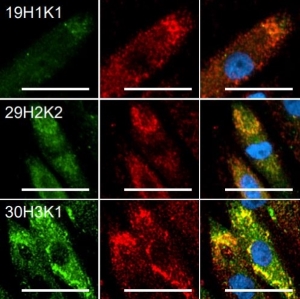A couple months ago, we published a blog post highlighting the 20+ years of results our pain antibodies have demonstrated (learn more here). It didn't take long into 2023 to add on another year to the total. Earlier this month, researchers from the University of Texas Health Science Center at San Antonio published preliminary findings with the help of Neuromics' Guinea Pig VR1 C-Terminus/TRPV1 antibody (cat. GP14100).
Image: Immunofluorescent images of WGA and TRPV1 (cat. GP14100) staining of TG tissues in male and female mice with colocalization of TRPV1 and WGA indicated with arrows.
The researchers noted that orofacial pain is clinically understood to be more common in females than males. However, despite this understanding, no research had been done to look at what factors cause this occurrence. Using mice as a model, the investigators began to characterized the sex-specific differences in gene expression, biological pathways, and molecular function of tongue sensory neurons. Our antibody played a big part in their analysis. We encourage you to check out the full publication below to learn more about their findings.

In addition to this most recent publication, Neuromics has dozens of references using many of our pain research antibodies. You can explore all the publications here and the antibodies here. Some of our most popular pain antibodies include:
- Mu Opioid Receptor
- VR1 C-Terminus (TRPV1)
- Substance P
- Alpha 2a Adrenergic Receptor
- NPY Y2 Receptor
- ORL-1/Opioid Receptor Like 1
- TRPA1
Citation:
- Tarek Ibrahim, Ping Wu, Li-Ju Wang, Alexei Tumanov, Zhao Lai, Korri Weldon, Yidong Chen, and Shivani Rupare. (2023). Sex-Dependent Differences in the Genomic Profile of Lingual Sensory Neurons in Naïve and Tongue Tumor Bearing Mice.bioRxiv. doi: 10.1101/2023.01.14.524011






